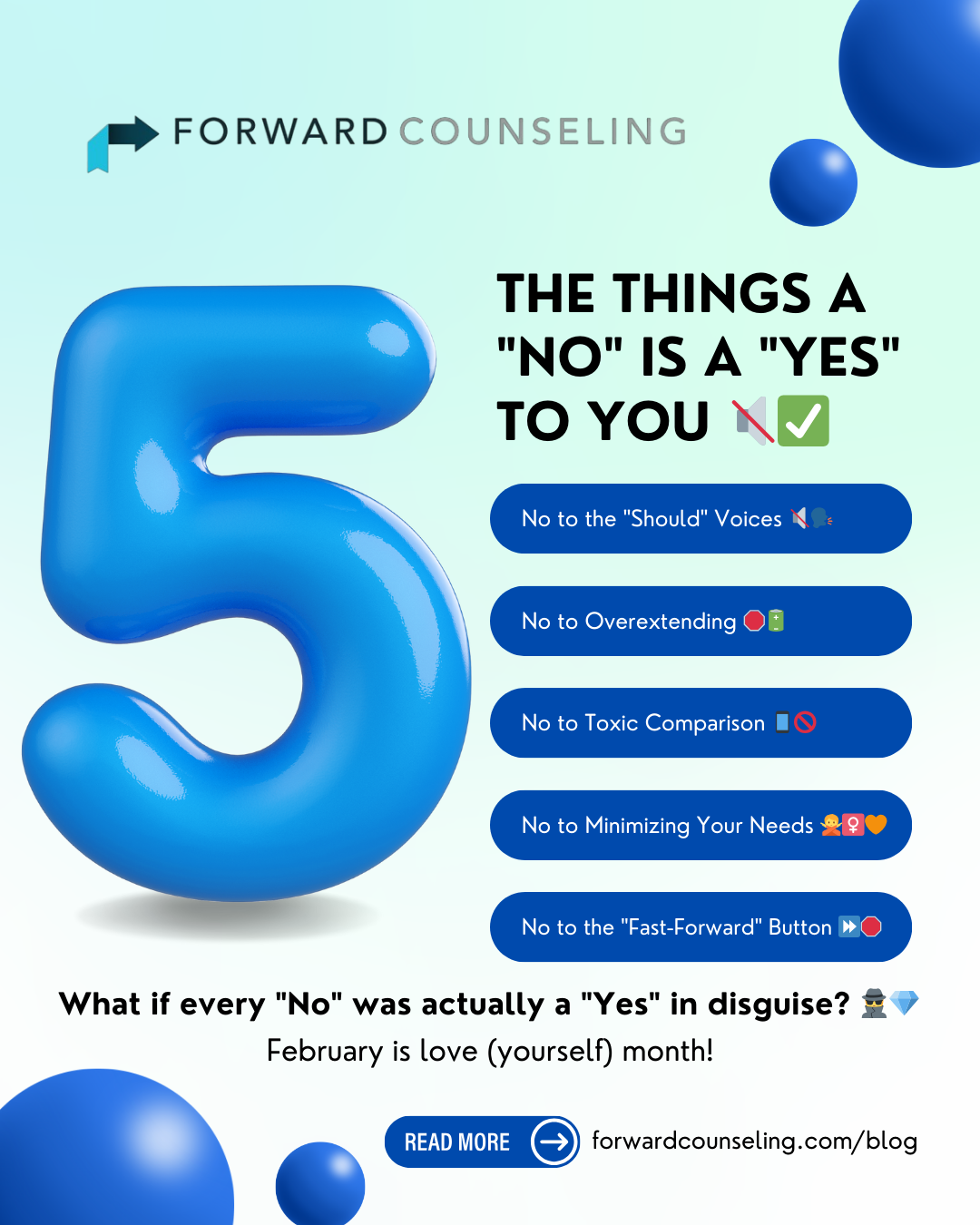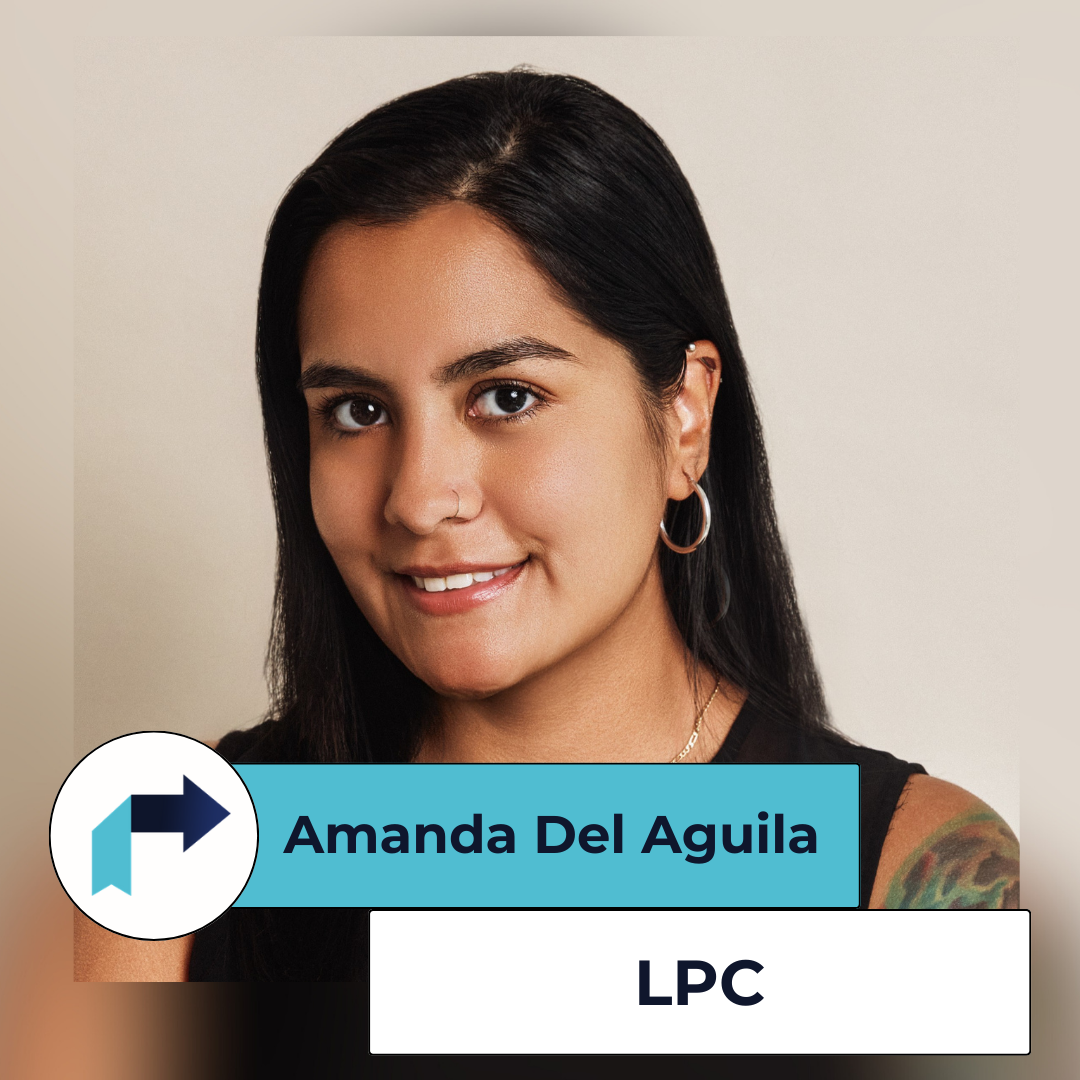Reclaim Your Radiance: An Insightful Q&A with Pamela Bende, APRN, PMHNP-BC
/Stepping into a mental health journey is a brave act, and finding the right support makes all the difference. Forward Counseling is excited to introduce you to Pamela Bende, an APRN, PMHNP-BC, who brings a deeply compassionate and holistic approach to her practice.
She is a dedicated mental health professional with five years of experience who guides individuals through life's challenges with compassion and evidence-based practices. Specializing in conditions like depression, anxiety, and PTSD, Pamela creates a safe space where clients feel heard, supported, and empowered to pursue personal growth and healing. Her approach is tailored to individual needs, combining medication management, CBT, mindfulness, and trauma-informed care to foster resilience and emotional well-being, all while offering flexible telehealth and in-person sessions with various insurance options.
In this Q&A, Pamela shares her unique insights on healing, addresses common questions about therapy and medication, and invites you to discover how her personalized care can help you reclaim your radiance and inner peace.
What unique insights do you feel your nursing roots bring to how you care for someone's mental well-being, especially when considering the whole picture of their health?
My nursing roots infuse my psychiatric practice with a deeply holistic, patient-centered lens—one that sees beyond diagnoses and embraces the full context of a person's life. I’m trained to assess not only symptoms but also the social, physical, spiritual, and emotional factors that influence well-being. That means when someone walks through my door, I’m attuned to the nuances: how chronic illness might impact mood, how a trauma history shapes trust, or how environment or cultural identity influences help-seeking. Care is relational, not just clinical, and that therapeutic presence, grounded in empathy and collaboration, allows me to support healing in a way that honors the whole person, not just a mental health diagnosis.
After five years of helping people, what's one common belief about seeking mental health support—including considering medication—that you'd love to correct for someone considering therapy gently?
A common belief many people hold is that needing therapy or medication means they've somehow failed or are “too weak” to manage on their own. In truth, reaching out for support is one of the most courageous, self-aware steps a person can take. As someone who has walked alongside clients for five years, I have seen how transformative it is when individuals reframe mental health care not as a sign of brokenness but as an active investment in their well-being. Therapy and medication aren’t admissions of defeat; they’re tools of empowerment, helping people move toward healing with support and clarity. It's not about being “fixed,” but about being cared for intentionally and without shame.
Could you share a tiny glimpse into how your integrated approach, which includes medication management when appropriate, helps clients find real light and progress in these journeys?
I see the use of medication as a bridge to receiving holistic intervention for a mental health problem. By that, I mean, for someone struggling with overwhelming symptoms—whether that’s panic attacks, depressive fog, or intrusive PTSD memories—medication can quiet the chaos just enough to let therapy in. I choose to help reframe meds not as a forever solution, but as a stabilizing tool that creates space for healing to begin. I help people trust that change is possible, not because I offer guarantees, but because I walk alongside them with steadiness and belief, even when they don’t yet believe in themselves.
How does your unique blend of medication management, CBT, mindfulness, and trauma-informed care create a truly personalized and holistic healing path for each individual?
By combining medication management, CBT, mindfulness, and trauma-informed care, my approach meets clients exactly where they are—biologically, psychologically, and emotionally. Medication can offer symptom relief that creates space for therapy to be effective; CBT helps clients challenge unhelpful thought patterns and build healthier coping strategies; mindfulness anchors them in the present and cultivates self-awareness; and trauma-informed care ensures that all interventions are delivered with sensitivity to past experiences, fostering safety and trust. This is a dynamic, flexible approach that adapts to each person’s evolving needs, honoring their story while helping them reclaim agency over their mental health journey.
With your roots in West Africa and your life now in Nashville, how do you find your rich background helps you connect with and create a truly welcoming and safe space for all the diverse folks you work with, especially when discussing sensitive topics like medication?
My West African heritage, interwoven with my experiences in Nashville, gives me a unique cultural fluency that helps me meet people with openness, humility, and deep respect for their stories. I understand that mental health conversations, especially around medication, are shaped by culture, faith, stigma, and lived experience, so I approach these topics with care, validation, and gentle education. My background allows me to bridge differences with shared humanity, creating a space where clients feel seen, not judged. I show people that healing doesn’t have to abandon their identity; it can honor it. That blend of cultural insight and clinical skill makes my care feel personal, affirming, and safe.
For someone who might be feeling a bit hesitant about starting therapy or discussing medication, what's that one warm piece of encouragement you'd offer to help them take that brave first step toward feeling better?
Starting therapy or talking about medication can feel daunting, but reaching out doesn’t mean one is weak; it means you’re hopeful. I’d gently remind them that it’s okay to not have everything figured out before you begin; healing isn’t about having the perfect words or answers, it’s about showing up for yourself, even if your voice shakes. You don’t have to leap all at once, just take the next small step, like a conversation. You deserve support, and there is strength in choosing to let someone walk beside you as you start making sense of things. That first step, even if it's hesitant, is already an act of courage.
What does that journey truly look like in your sessions, and how do you help clients rediscover themselves in new, wonderful ways, whether through therapy or the support of medication?
In my sessions, personal growth and healing unfold as a gentle, empowering exploration, one where clients are met with compassion, curiosity, and a steady sense of safety. I help them peel back the layers of pain or self-doubt, not all at once, but at a pace that honors their story. Through therapy, I guide them in recognizing patterns that no longer serve them, building new skills, and reclaiming inner truths that may have been buried by trauma or stigma. When medication is part of the path, I approach it with transparency and encouragement, framing it not as a shortcut but as a supportive tool that can help ease suffering and create emotional bandwidth for deeper work. Ultimately, I help clients see themselves not as broken, but as becoming, rediscovering their voice, their strength, and their capacity for joy.
Since you offer both telehealth and in-person sessions, how do you make sure that warm, compassionate, and effective care shines through, no matter how a client prefers to meet or if they need medication support?
No matter the setting, whether a client is sitting across from me in a shared space or connecting through a screen, my presence remains steady, attentive, and deeply human. In-person sessions allow me to offer grounding warmth through body language and shared physical space, while my telehealth approach is just as intentional. I foster comfort with eye contact, thoughtful pacing, and gentle curiosity that transcends distance. When it comes to medication support, my communication is transparent and collaborative, helping clients feel empowered and informed regardless of how they choose to engage in care. What truly shines is my unwavering commitment to connection, reminding each person that healing doesn’t depend on location, but on the trust and respect we build together.
Could you share a brief, anonymous story—perhaps just a feeling or a moment—where thoughtful medication management played a key role in a client's positive journey?
There was a quiet moment in a session when a client, who had spent months battling fatigue and overwhelming self-doubt, softly said, “I finally feel like myself again.” She had been hesitant about starting medication, fearful it would change who she was. But with patient collaboration, regular check-ins, and small dosage adjustments, she began to re-engage with life. She started painting again, laughing with her kids, and sleeping through the night. It wasn’t just the medication; it was how it was introduced thoughtfully, as support, not a solution. That shift, the reclaiming of joy, was a reminder that healing can start with the smallest sense of ease returning.
What's something truly special about your approach that helps clients find clarity, confidence, and inner peace, and what can someone expect to feel in their very first chat with you if they have questions about medication?
What is truly special about my approach is the calm and thoughtful presence I bring into each conversation, one that combines clinical knowledge with genuine human connection. In that very first chat, clients often feel a sense of relief; they are not being judged, rushed, or overwhelmed with jargon, but gently guided and heard. I create a space where curiosity is welcomed, and questions, especially around medication, are met with honesty, empathy, and collaboration. My goal isn’t to convince, but to inform and empower. That clarity opens the door to confidence, and from there, clients begin to rediscover a sense of peace, knowing they’re not walking this journey alone, but with someone who truly sees them.
Ready to reclaim your inner peace?
Schedule an in-person or virtual consultation with Pamela Bende, APRN, PMHNP-BC, at Forward Counseling today.







